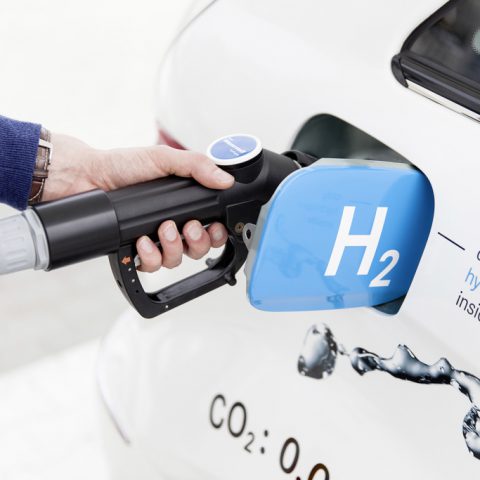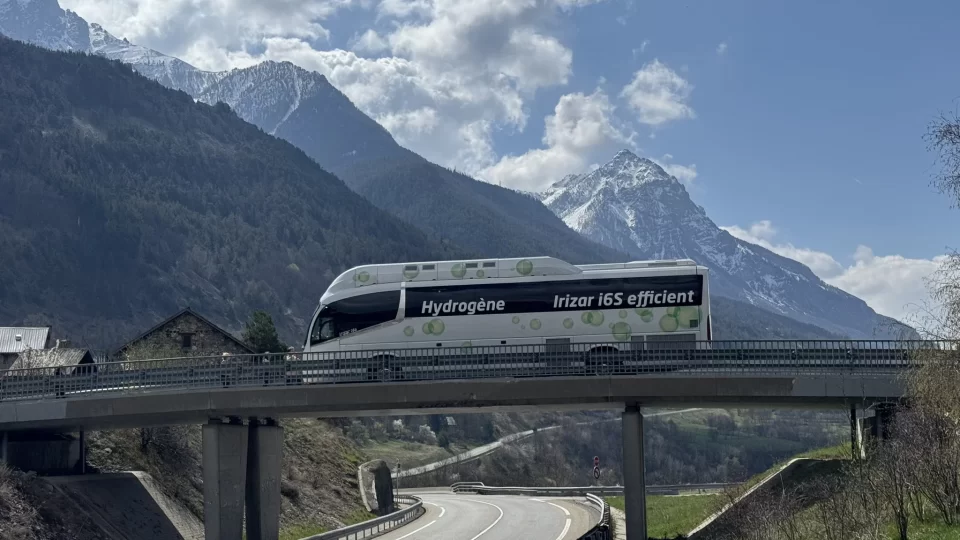H2-based fuels? «Inefficient», says a research by Potsdam Institute for Climate Impact Research (PIK)
«Hydrogen-based fuels should primarily be used in sectors such as aviation or industrial processes that cannot be electrified, finds a team of researchers. Producing these fuels is too inefficient, costly and their availability too uncertain, to broadly replace fossil fuels for instance in cars or heating houses. For most sectors, directly using electricity for instance […]

«Hydrogen-based fuels should primarily be used in sectors such as aviation or industrial processes that cannot be electrified, finds a team of researchers. Producing these fuels is too inefficient, costly and their availability too uncertain, to broadly replace fossil fuels for instance in cars or heating houses. For most sectors, directly using electricity for instance in battery electric cars or heat pumps makes more economic sense. Universally relying on hydrogen-based fuels instead and keeping combustion technologies threatens to lock in a further fossil fuel dependency and greenhouse gas emissions».
It’s the outcome of a study by the Potsdam Institute for Climate Impact Research (PIK), which is apparently going to open a new chapter in the debate about energy transition.
PIK: hydrogen-based fuel not competitive for ten another decade
“Hydrogen-based fuels can be a great clean energy carrier – yet great are also their costs and associated risks,” says lead author Falko Ueckerdt from the Potsdam Institute for Climate Impact Research (PIK). “Fuels based on hydrogen as a universal climate solution might be a bit of false promise. While they’re wonderfully versatile, it should not be expected that they broadly replace fossil fuels. Hydrogen-based fuels will likely be scarce and not competitive for at least another decade. Betting on their wide-ranging use would likely increase fossil fuel dependency: if we cling to combustion technologies and hope to feed them with hydrogen-based fuels, and these turn out to be too costly and scarce, then we will end up further burning oil and gas and emit greenhouse gases. This could endanger short- and long-term climate targets.”
If we use hydrogen-based fuels instead of direct electrification alternatives, two to fourteen times the amount of electricity generation is needed, depending on the application and the respective technologies
Romain Sacchi from the Paul Scherrer Institute
Hydrogen for road transport?
Ueckerdt adds: “We should hence prioritize those precious hydrogen-based fuels to applications for which they are indispensable: long-distance aviation, feedstocks in chemical production, steel production and potentially some high-temperature industrial processes,” says Ueckerdt. “These are sectors and applications that we can hardly electrify directly.”
The researchers stress the point that, given that green hydrogen is produced through a process called electrolysis, a lot of electricity is needed to crack the stable H2O water molecules into Hydrogen and Oxygen. The hydrogen can then be used to synthesize hydrocarbon fuels by adding carbon from CO2. The resulting electro-fuels or e-fuels – they highlight – are easier to store and transport than electricity or pure hydrogen. “Most importantly, e-fuels can be burned in conventional combustion processes and engines and thus directly substitute fossil fuels,” says Gunnar Luderer, co-author of the paper. “However, given their limited availability, it would be wrong to think that fossils can be fully replaced this way.”
Efficiency losses of hydrogen
“If we use hydrogen-based fuels instead of direct electrification alternatives, two to fourteen times the amount of electricity generation is needed, depending on the application and the respective technologies,” says co-author Romain Sacchi from the Paul Scherrer Institute. “Efficiency losses happen both on the supply side, in the production process of the hydrogen-based fuels, and on the demand side – a combustion engine wastes a lot more energy than an electrical one.”
“Low energy efficiencies cause a fragile climate effectiveness,” says Sacchi. “If produced with the current electricity mixes, hydrogen-based fuels would increase – not decrease – greenhouse gas emissions. For the German electricity mix in 2018, using hydrogen-based fuels in cars, trucks or planes would produce about three to four times more greenhouse gas emissions than using fossil fuel.”
In contrast, electric cars or trucks cause greenhouse-gas emissions that are comparable to or lower than those of diesel or gasoline cars already based on today’s electricity mixes in most countries, the researchers show based on a full cradle-to-grave life-cycle analysis that includes also those emission associated with the battery production.
Increasing CO2 prices to make hydrogen competitive
Researchers from the Potsdam Institute for Climate Impact Research add that even if assuming 100% renewable electricity, the costs of avoiding one ton of CO2 emissions by using hydrogen-based fuels would currently be 800 Euro for liquid and 1200 Euro for gaseous fuels, the researchers calculated. This is much higher than current CO2 prices for instance in the European Emissions Trading Scheme, which currently are below 50 Euro per ton. However, if there is continued technological progress driven by CO2 prices as well as subsidies and investments into hydrogen and related industries, by 2050 these CO2 abatement costs could drop to roughly 20 Euro for liquid and 270 Euro for gaseous e-fuels.
Hence, with increasing CO2 prices hydrogen-based fuels could become cost competitive probably by 2040. This is too late for those sectors where direct electrification alternatives exist, given the urgency of greenhouse gas emissions reductions to stabilize our climate.







